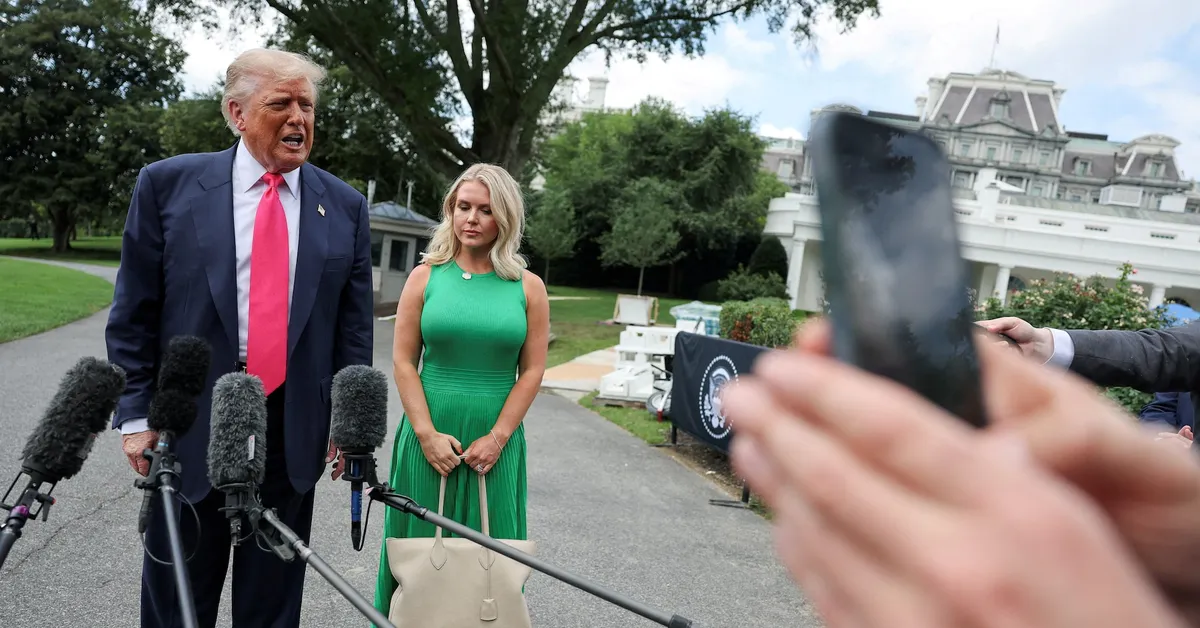
On September 14, 2023, the U.S. was rocked by the shocking news of Charlie Kirk's death, a prominent conservative activist and podcast host, gunned down on a Utah college campus where he was delivering a speech. In an unprecedented move, former President Donald Trump has stepped into the role of spokesperson, providing updates and details that would typically be managed by law enforcement or local officials. His rapid response has captivated the nation and sparked a wave of political discourse.
Donald Trump was quick to confirm the devastating news of Charlie Kirk's death, becoming the first to announce that a suspect was in custody. He shared details about Kirk's funeral and expressed his intention to attend, showcasing a level of engagement that is unusual for a former president. Following the initial reports, Trump pointed fingers at the radical left, suggesting their involvement without presenting any evidence. This claim resonated with many of his followers, igniting calls for vengeance amid rising tensions within conservative circles.
Charlie Kirk, who co-founded the conservative student organization Turning Point USA, left behind a legacy of both admiration and controversy. Known for his divisive views on various social issues, Kirk garnered a substantial following but also faced backlash for his anti-LGBTQ and anti-immigrant rhetoric. Trump, who praised Kirk's ability to connect with young voters, described him as having a "magic" over youth. His relationship with Kirk was both personal and political, highlighting the impact Kirk had on Trump's outreach to younger demographics.
In a series of unconventional gestures, Trump ordered flags to be flown at half-staff and announced plans to award Kirk the Presidential Medal of Freedom. These actions, while honoring Kirk's influence, are also seen as a way for Trump to solidify his connection with the conservative base. In a notable departure from traditional presidential behavior, Trump has taken control of the narrative surrounding Kirk's death, steering public discourse in a manner that reflects his characteristic direct communication style.
As the nation grapples with a surge of political violence reminiscent of the 1970s, Trump has urged his supporters to respond non-violently, despite his incendiary remarks that could fuel further unrest. Following the arrest of Tyler Robinson, the 22-year-old suspect charged with the shooting, motives remain unclear as investigators examine messages engraved on bullet casings that may reference political affiliations.
Trump's approach to communication has evolved, especially during his second term, as noted by senior adviser Mercedes Schlapp. She emphasized his desire to dominate the news cycle, a strategy that has proven effective in shaping public perception. However, this method carries risks, as off-the-cuff remarks can complicate ongoing investigations and may contradict future facts. Yu Ouyang, a political science professor, pointed out that typical presidential protocols involve a more measured release of information, understanding the weight of their words.
Critics have voiced concerns regarding Trump's rhetoric, particularly in light of his quick attribution of blame to the left without a full understanding of the circumstances. Senator Elizabeth Warren and others have highlighted the inconsistency in Trump's messaging, particularly compared to his muted responses to violence against liberal figures. Communication studies professor Denise Bostdorff noted that while Trump attempts to console, his rhetoric often exacerbates tensions by prematurely blaming specific groups.
As the investigation into Charlie Kirk's murder continues, the political landscape remains charged. Trump's accessibility and unfiltered communication style resonate with many supporters, yet they also raise questions about the implications of such rhetoric in an era marked by increasing political violence. The White House has yet to comment, leaving many to ponder the long-term effects of Trump's actions and the future of political discourse in America.